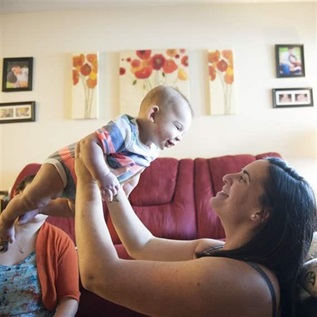Pew: Federal Requirements for Home Visiting Funds Give States Right Incentives
Libby Doggett, deputy director at the Pew Center on the States, issued the following statement today on the U.S. Department of Health and Human Services' release of criteria for the Maternal, Infant and Early Childhood Home Visiting Program.
“These guidelines send exactly the right message: State and federal lawmakers should invest in proven programs that earn a strong return on taxpayer dollars and boost long-term fiscal health. We applaud Congress and the administration for requiring states to adopt home visiting models shown to get results and for holding these programs accountable for their performance.
“Grounding budget decisions in solid data and putting accountability systems in place will be challenging for some states. Research by Pew has found that, though most states fund at least one of the evidence-based models identified in the federal criteria, the majority do not direct their dollars toward proven home visiting programs. There are a few states that do, however, including New York, which invests in Healthy Families New York, and Pennsylvania, which invests in the Nurse-Family Partnership. Both are nationally recognized for setting high standards and ensuring outcomes for families and the public.
“Ultimately, these new requirements—and the unprecedented federal investment backing them—will propel states toward the most effective, efficient policies known to encourage responsible parenting, support children's healthy development and benefit taxpayers in the short- and long-term.”
Background: The Maternal, Infant and Early Childhood Home Visiting Program, established last year by Congress, provides $1.5 billion in grant funding over five years to help states expand evidence-based voluntary home visitation services for new and expectant families. Newly released criteria, based on a Mathematica Policy Research, Inc. review of all available home visiting research findings, identify seven models that qualify as “evidence-based” and set requirements for state-administered program accountability benchmarks, data collection and reporting. State-supported programs that meet these criteria will be eligible to apply for the federal grants.
The Pew Home Visiting Campaign promotes smart state policies and investments in quality, voluntary home-based programs for new and expectant families. More at pewcenteronthestates.org/homevisiting.
The Pew Center on the States, a division of The Pew Charitable Trusts, identifies and advocates effective policy approaches to critical issues facing the states. The Pew Charitable Trusts is driven by the power of knowledge to solve today's most challenging problems. Pew applies a rigorous, analytical approach to improve public policy, inform the public and stimulate civic life.











